Producers
-
Description:
Cirò wine can be traced back to antiquity, when is was allegedly served to the winners at the ancient Olympics. Run by husband and wife team Francesco and Laura de Franco, ‘A Vita is located on the arch of Italy’s boot tip, nestled between the Ionian sea and Sila mountains; this situation ensures both coastal influence and dramatic diurnal shifts. DOC Cirò is dominated by one producer: Librandi, who produces over 200,000 cases per year. By contrast, Francesco & Laura make only 2000 cases total.
The red wines are 100% Gaglioppo, a rustic variety native to the area which typically has dusty tannins and aromas of roses; it is an offspring of Sangiovese and a cousin to Nerello Mascalese. The vineyards are certified organic, and no fertilizer is used. Instead they plant cover crops, and are careful to not work the soil so as to favor natural biodiversity. In the cellar, there is zero technological input: the wines are fermented spontaneously without temperature control, decanted naturally, and are never rushed. A small amount of sulfur is used at bottling. The wines are often aged in bottle for an extended time before release.
To view their website click here.
For a nicely produced video (in Italian) click here.
Image: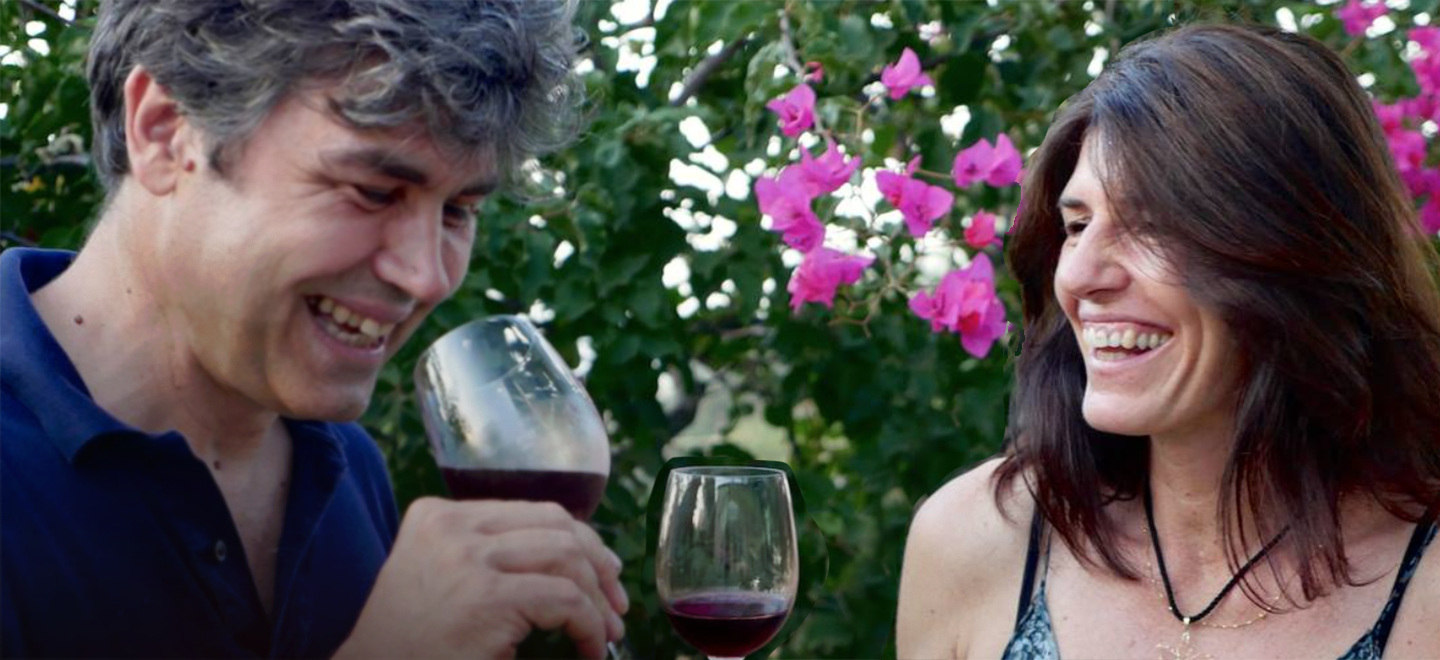 Region:
Region: -
Description:
The Origin of 4 Copas
4 Copas was founded in 1997 by Hector Galindo Miranda—known simply as “Don Hector” in the industry—driven by a vision to craft a tequila that honored tradition while embracing purity. His pioneering efforts led 4 Copas to become the world’s first certified organic tequila, setting a new standard in the spirits world. To bring this vision to life, Hector collaborated with legendary Master Distiller Sebastián Melendrez of Tequila, Jalisco. Together, they blended science and nature to create a spirit of exceptional quality, made exclusively from 100% organic agave, water from the lowlands, and organic yeast. Today, 4 Copas is proudly owned by generational agave growers from Arandas, Jalisco—a family deeply rooted in the tequila tradition. Their heritage and hands-on approach ensure that every bottle of 4 Copas stays true to its origins while continuing to represent the finest in organic tequila. Continuing the legacy of excellence, 4 Copas is now crafted under the guidance of Iliana Partida, one of the most highly regarded female Master Distillers in the industry. Production takes place at Hacienda De Oro, a distillery known for its artisanal methods and commitment to quality—faithfully continuing the brand’s legacy of being produced in the lowlands of Jalisco, near the Tequila Volcano. 4 Copas remains certified organic by the USDA and EU, and is also certified Kosher under Rabbinical law.
The Organic Difference
Every bottle of 4 Copas begins with carefully selected seeds from certified organic agave fields located near the Tequila Volcano in the famed region of Amatitán, in the lowlands of Jalisco. This volcanic region is rich in minerals like silica, potassium, iron, and copper—all essential for healthy agave growth and integral to the tequila’s complex flavor profile. The unique combination of volcanic soil, warm climate, and high elevation creates a natural micro-terroir, a distinct environment that deeply influences the agave’s development, imparting nuanced aromas and layered taste. Grown without synthetic chemicals, the agave is cultivated using only organic fertilizers and cared for by hand through every stage—from planting to harvest. Shoots are hand-selected for propagation, ensuring only the strongest, healthiest plants are used. This time-intensive, artisanal approach preserves the land and enhances the spirit’s authenticity. What truly sets 4 Copas apart is its natural fermentation process, developed through a proprietary method that draws out the full character of the agave. The result is a tequila with exceptional purity, depth, and elegance—an organic expression of place and process that leaves a lasting impression with every sip.
Image: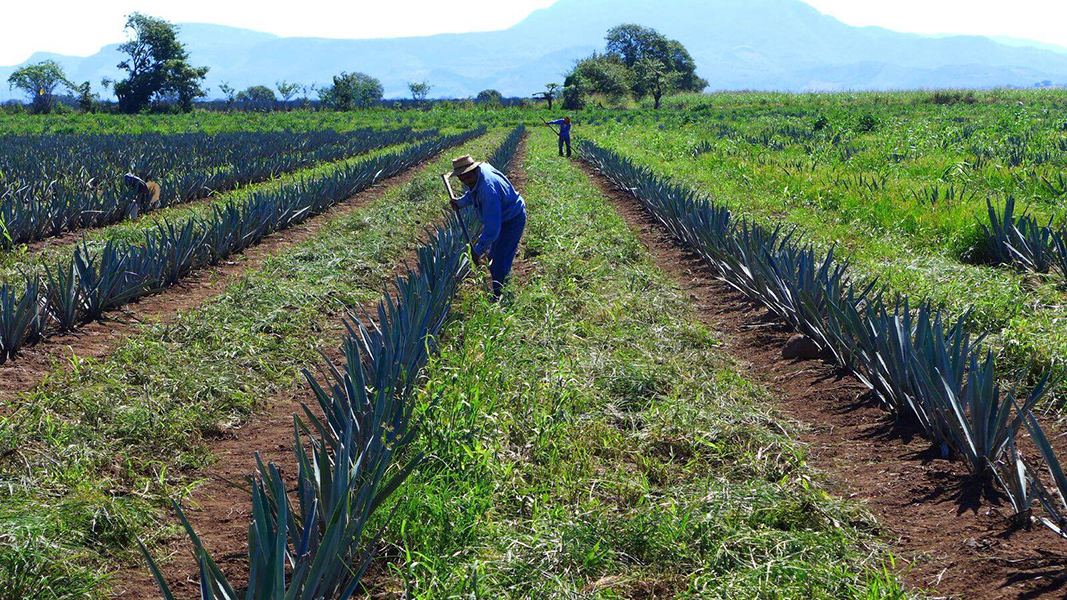 Region:
Region: -
Description:
45th Parallel is a small, family-owned craft distillery in New Richmond, Wisconsin. When they opened their doors in 2007, they were one of 50 craft distilleries in the United States; there are now more than 1,000. They have seen consistent growth over the years, doubling in both physical size and production capacity, and have gone from making a single vodka to producing gins, whiskeys, aquavits, and citrus liqueurs as well. Their name comes from the fact that they are located on the 45th parallel, halfway between the equator and the north pole.
They take no short cuts. They use only locally-grown grain, and distill their whiskeys in a pot still; afterwards, they use traditional aging techniques in Ozark white oak barrels with medium char, constructed from wood staves that are air dried three years. The whiskeys are aged a minimum of 4 years.
Image: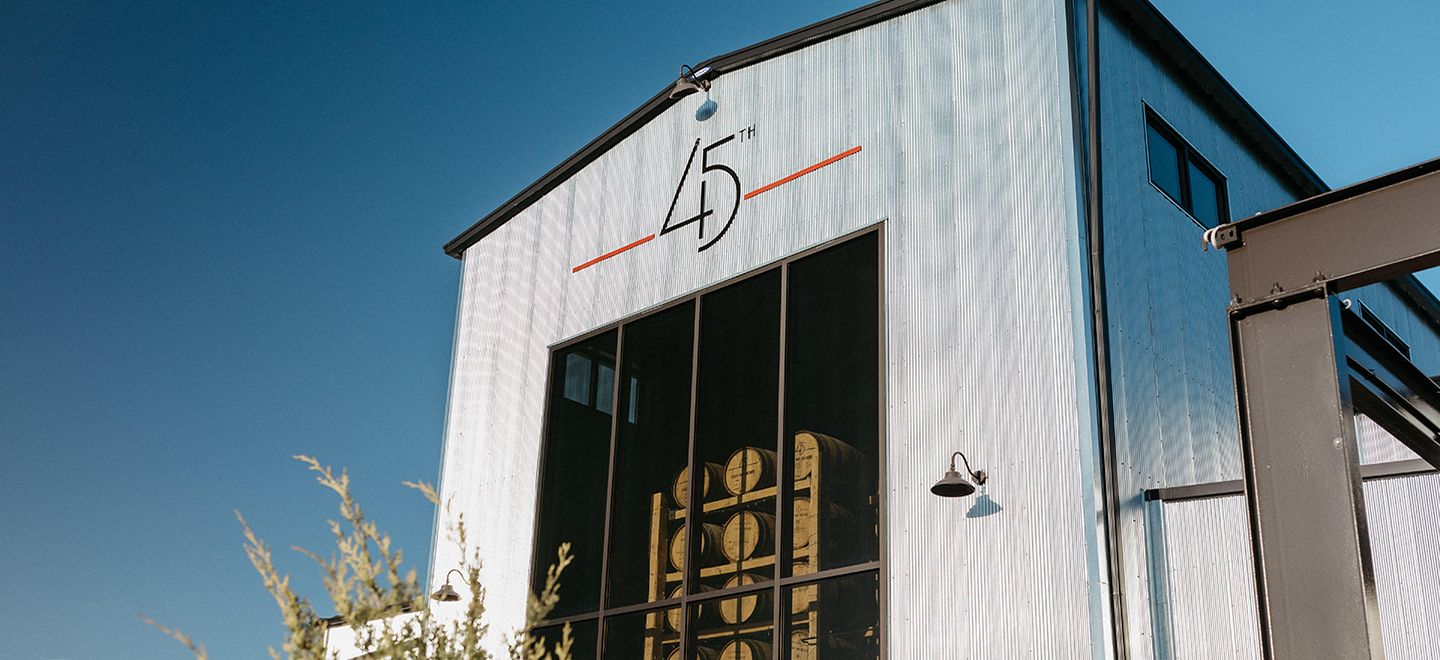 Region:
Region: -
Description:
Thank you to Louis/Dressner for this profile of Eduardo Torres Acosta:
(Click here for LDM's Acosta notes on their website)
Eduardo Torres Acosta, a young winemaker from the Canary Islands, first began working with vines in Tenerife where his father (a local postman) had a small plot of land. In 2012 Eduardo moved to Sicily, where he interned at Azienda Arianna Occhipinti (you may have heard of her). Soon thereafter he got a job as the enologist at Azienda Passopisciaro, one of the pioneers of Etna's new wave of producers. Despite Eduardo’s "outsider" status, he managed to rent several fine parcels on Etna from locals. Up until the 2017 vintage, the grapes were harvested and then trucked to Arianna Occhipinti’s estate in Vittoria. Since the winemaking facility was not on Etna, the wines were not allowed DOC status and simply carry the IGT Terre Siciliane designation. In 2018, Eduardo was able to convert a small Etna garage into a winery but has decided to keep the wines IGT.
Today Eduardo works eight small parcels totaling 4.5 hectares. The main production is a wine called Versante Nord, produced in both white and red. Both wines are sources from six parcels totalling less than two hectares on the cooler, north-facing side of Mt. Etna (hence the name) at elevations ranging from 750 to 950 meters. In traditional style, he vineyards are mixed plantings of various local varieties. The red grapes include a majority of Nerello Mascalese with Nerello Cappuccio, Alicante, Garnacha and others; the whites include Minella, Catarratto, Grecanico, Carricante and Inzolia. The training is mainly alberello, in some cases growing as bushes and in some trained on wires.
Two single vineyards are produced, Pirrera and Quota N, the latter from a vineyard called Germana. Pirrera comes from a single contrada located at 850 meters in altitude. The name of the vineyard, Pirrera, stems from the presence of volcanic stones which were extracted from a quarry during a lava flow in 1614. The vineyard had been largely abandoned and is slowly being restored by Eduardo. Lighter and fresher than the Versante Nord due to the higher altitude, this is a blend of 90% Nerello Mascalese and 10% local varieties from vines of 50 plus years.
Quota N was first bottled in the 2018 vintage. Eduardo acquired this flat, half-hectare, west-exposed parcel of ungrafted (hence piedi franco on label), 80-100-year-old, co-planted bush vines. It is surrounded by stone walls on very rocky, sandy volcanic soils at the high elevation of 1070 meters in the contrada. The parcel is named Germana for its historical family owner, but Eduardo was not allowed to use this and was also not premitted to use the Nave contrada name because the site is too high to fall within DOC Etna Rosso rules. The local road is called strada quota nave and from this phrase, Eduardo pulled the "Quota N" name for the wine. The production is unavoidably miniscule, smaller even than the parcel size would suggest, due to the naturally low yields of these old-timers as well as to holes where they have died or stopped producing.
Image: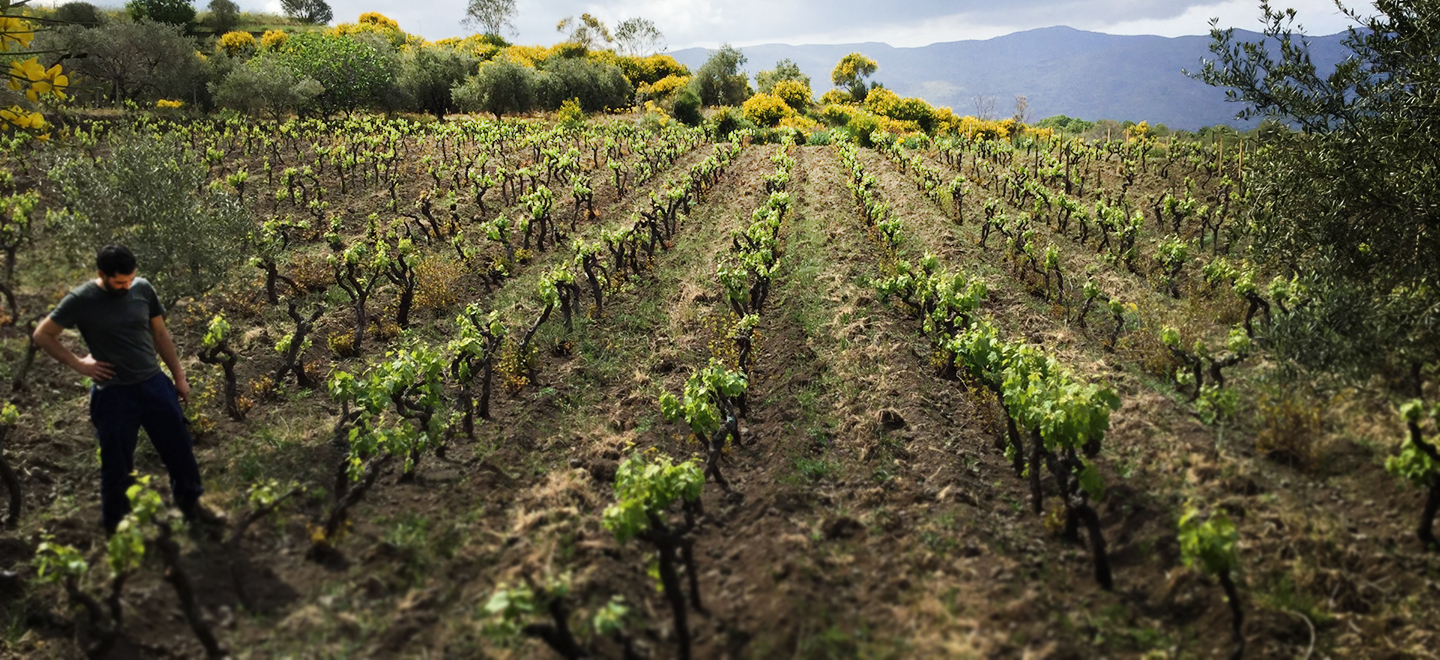 Region:
Region: -
Description:
I don’t think it’s hyperbole to say that this is one of the most exciting collections of wines I have ever tasted in Germany. The reasons are varied and numerous, but they all spring from the heart and skill of one person: winemaker and estate owner Simone Adams.
Simone is a young winemaker with a husband and two small children, running a 10ha farm she took over when her dad passed away in 2010. Her vineyards all lie in Ingelheim in the far northern Rheinhessen where a mix of flat and gently rolling vineyards of clay and limestone enjoy a cool microclimate tempered by the Rhein river, just 5km away. The village sits in the “knee” of the valley, protected from rain and inclement weather. Interestingly, the vineyards are on east-west facing slopes, not north-south ones, which benefits air circulation.
Simone works biodynamically in vineyards which never saw fleurbereinegung, the nationwide reorganization of German wine growing areas which in recent decades has uprooted many old vines and historic parcels elsewhere. Her oldest vines are 40-45 years old, and the emphasis is on Burgundian varieties—Pinot Blanc, Pinot Gris, Chardonnay(1.5ha), and most importantly Spatburgunder, a.k.a. Pinot Noir, planted on 5ha representing 50% of her production.
The winemaking is simple and patterned after traditional Burgundy: natural fermentations in steel, maturation in big barrels for the village wines and barriques for the single site ones, 12-18 months of aging on the lees, no fining, no filtering, and only a modest dose of SO2 added at bottling. There is no gutswein here, only wines of terroir.
Why are the offerings at AdamsWein so special? Because these are wines that feel GROWN not made, imbued with an incredible sense of life, elegant in structure, almost minimalist in form, yet teeming with vital energies. The Chardonnays with their firm spines and incandescent fruit snap the taster to attention. The Pinots put one’s cerebral cortex in overdrive, insisting on a “here-and-now” moment, posing questions and inviting speculation. The fruit is ripe – a new norm for German Pinot in our generation—but these are cool climate wines all the way, bracing and satisfying to drink. There is little doubt they will age beautifully.
When I tasted through Simone’s line-up in April of this year, I looked at her and said, “you remind me of Claude de Nicolay and her work at Chandon de Brialles.” I was trying to say that both the woman and her wines appeared relaxed, confident, totally in tune with their place, elegant in style and “natural” in the best sense with no need of make-up or pretense. She knew what I meant, smiled happily and thanked me; Claude is one of her heroes.
Taste the wines of Simone Adams and I hope that you will feel as I did that these bottles open a new chapter in German winemaking.
Image: Region:
Region: -
Description:
Agricola Grillos Cantores is a small side project started in 2019 by Paco Leyton of Clos des Fous. The vision began in Itata when Paco met the seventy-something-year-old José Neira and visited the vineyard his grandfather planted in the late 1800’s. Paco fell in love with the head trained, bush vines comprised of Corinto (aka Chasselas), Pais, Cinsault, and Aramon located in the La Leonora subregion of Guarilihue, Itata. The 1.5 hectare vineyard sits on a slope of white silt, sand and granitic soil, littered with mica and a high concentration of quartz. The vines are non-irrigated, plowed by hand, and naturally farmed. The steep terrain enables the vines to grow deep roots and produce complex, balanced wines that are vertical and mineral driven. Paco believes that Corinto is a great terroir translator because of its dry, neutral typicity. Paco’s strives to produce clean and pure wines without ego. Paco also produces a Corinto with Flor and eventually, he hopes to also make a red blend of Pais, Cinsault, and Aramon from the Neira's vineyard in the future.
This profile and tasting notes were edited from the Brazos Wine website, along with the pictures used. For more information please visit: Brazos
Image: Region:
Region: -
Description:
For more information about Alexandre Giquel, please visit Selection Massale.
Available in California.
Image: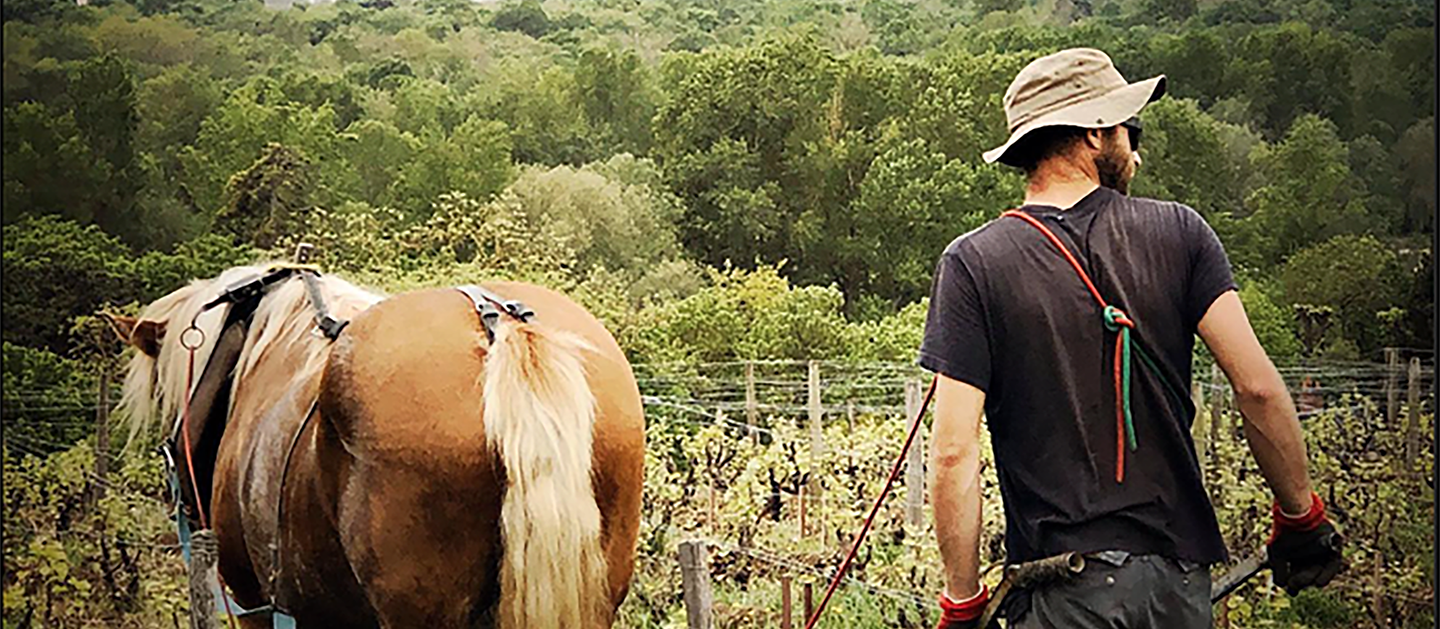 Region:
Region: -
Description:
For more information on Alexandre Hote, please visit Selection Massale.
Available in California.
Image: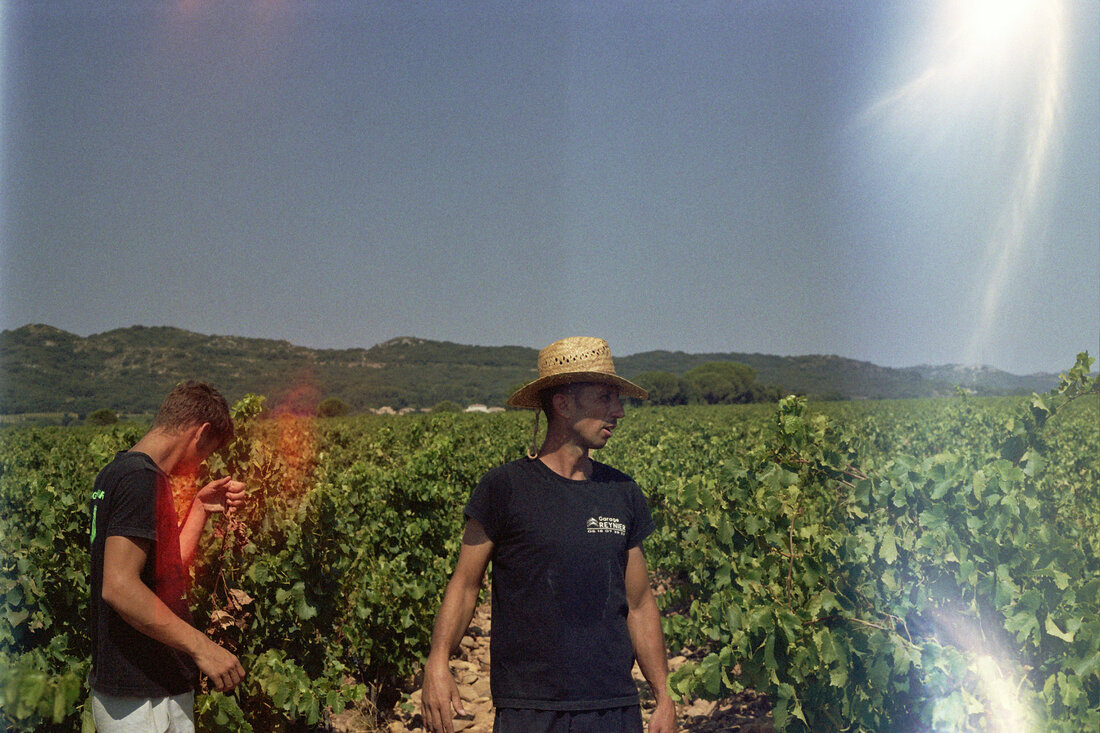 Region:
Region: -
Description:
Started in 1870 with a single hectare of vines on steep hillsides, the Leconte family vineyard now covers 10 hectares, made up of 40 plots spread across the villages of Troissy, Dormand, Mareuil-le-Port, Vandières, and Aÿ. Alexis took over for his father in 2013, becoming the family's sixth generation winemaker. Before returning to Champagne, Alexis spent years working in Alsace and Burgundy. His experiences convinced him that the base of good Champagne is quality still wine. The focus at Leconte is always the terroir of the wine, with effervescence as an added bonus.
Since the beginning, the guiding principle at Leconte has been highlighting the individuality of each plot. This ethos was an inevitable path to biodynamics. Conversion began right away, in 2013, with Demeter certification in 2023. For Alexis, what resonated most about Biodynamic philosophy was the belief in trusting nature, instead of endeavoring to master it. Geological testing is done on every plot to precisely identify the contents of the soil and best determine its needs. Alexis has reshuffled plantings based on his findings and seen the vines thrive.
In the cellar, Alexis continues to trust in what nature provides. Cuvée and taille are not separated and lees contact is encouraged to underscore the complete character of the grape. A wide range of vessels are employed: barrels, concrete, old foudres, and custom sideways eggs, each selected based on what will best partner with the juice. In accordance with biodynamics, tirages and rackings are scheduled around the lunar calendar. Cellar aging is slow, a minimum of two years for Totem and longer for the other cuvées, but Alexis refuses to rush the wines. Nature reveals itself in its own time.
Image: Region:
Region: -
Description:
Alta Gradazione was born out of the passion of four young guys for drinking quality liqueurs and a desire to create and experiment new tastes.
The project was started in Rome, Giacomo was the first to take the big step, he quit his job in a famous big consulting company and threw himself headlong into the new project: in 2017 Alta Gradazione, the “artisan liquor production company”, was born.
The result, after many recipes refinements and tastings, is fantastic handcrafted liquors, characterized by high quality natural and local raw materials, processed according to family recipes that have been handed down and perfected from generation to generation. The production is entirely artisanal and made in small batches in order to give the right attention to every step and with different techniques for maximizing the natural flavors of the ingredients.
The products perfectly suit for mixology purposes, they can be an edgy alternative to the usual aperitif or can be enjoyed neat at the end of a meal.
THEIR PURPOSE
To rediscover the Italian culture of liqueur-making, with a modern, innovative touch re-proposing Italy’s classics. Using High quality natural and, wherever possible, local raw materials, processed according to family recipes that have been handed down and refined from generation to generation.Image:Region: